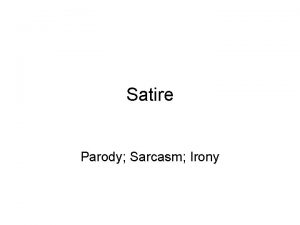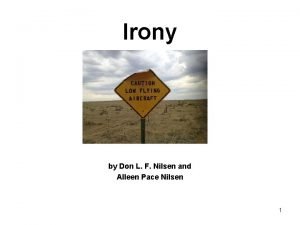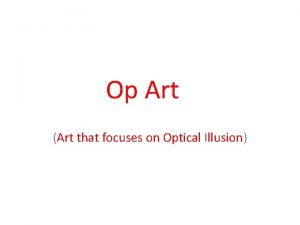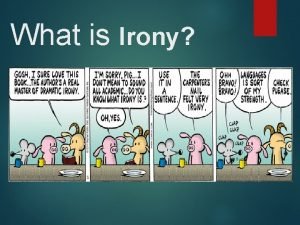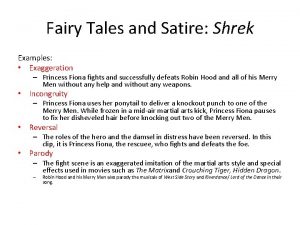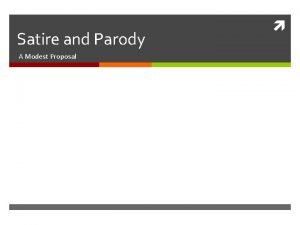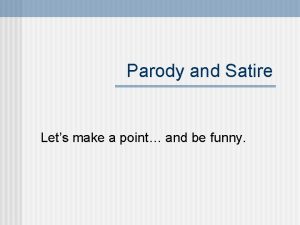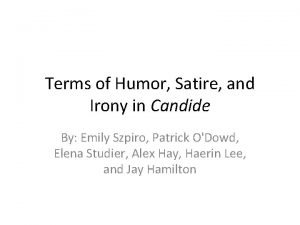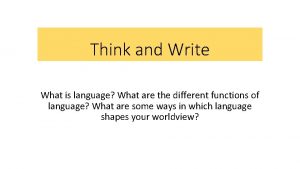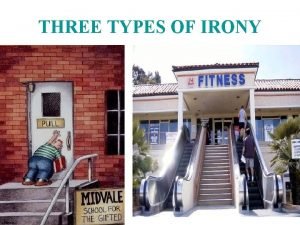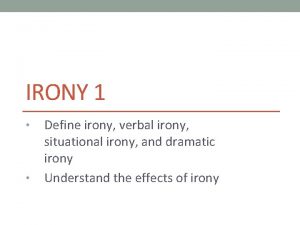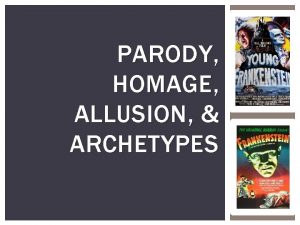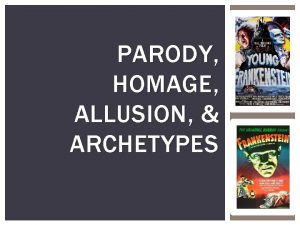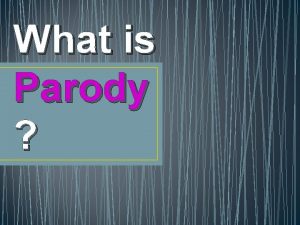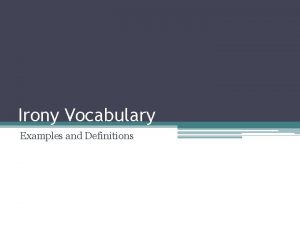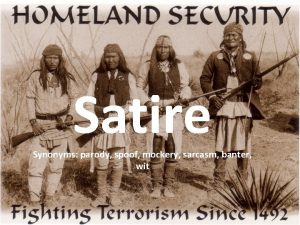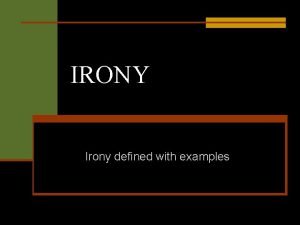Satire Irony Parody Sarcasm Definitions Examples Satire is










- Slides: 10

Satire Irony - Parody - Sarcasm +Definitions +Examples

• Satire is the use of irony, parody, sarcasm, and humor to criticize something or show the stupidity of mankind’s bad habits, lack of good sense, or foolishness. • Satire is found in … • literature and plays – Don Quixote • music - Weird Al Yankovic ; Eminem • political cartoons - Townhall. com • publications (newspapers and magazines) - The Onion • television shows and movies - Saturday Night Live ; The Colbert Report • Satire often forces us to think about issues or events from a different point of view. Satire

• It is a manner of writing that mixes a critical attitude with wit and humor in an effort to improve mankind and our institutions (government, school system, etc. ) • So … Satire is often funny or humorous while making a point. Satire (continued)

• Parody is an imitation of something, particularly in literature or film, that is meant to make fun of. It’s also known as a “spoof”. • When you parody something, you make fun of or mock it by imitating it in a funny way. • Examples: • Weird Al Yankovic does this best! • Disney Parody • The 4 elements of parody are exaggeration, verbal irony, incongruity, and humorous imitation. Satire: Parody

• The 3 elements of parody we will focus on when reading Don Quixote: • exaggeration: a statement that represents something as better or worse than it really is • verbal irony: when what is said is different than what it actually means • humorous imitation: an imitation of something that exaggerates or distorts the characteristic features of the original Satire: Parody (continued)

• Irony is the use of words where the meaning is the opposite of their usual meaning or what is expected to happen. • Examples: Someone who talks a lot having nothing to say when asked a question. OR Getting stuck in a traffic jam when you’re already running late. • 3 Types of Irony: • verbal irony • situational irony • dramatic irony Satire: Irony

• Verbal irony occurs when what is said is different than what it actually means. • Example: When you tell someone to “break a leg” but really you are telling them good luck. • Example: Mean Girls “Oh my gosh, I love your skirt, where did you get it? … That’s the ugliest skirt I’ve ever seen!” Verbal Irony

• Situational irony occurs when something happens that we wouldn’t expect to happen. • Examples: You win the lottery and die the next day – A fire station burns down – A donut shop runs out of donuts. • Example: Alanis Morissette: Ironic Situational Irony

• Dramatic irony occurs when the audience or reader knows more about the story than the characters do. • Example: Home Alone – We know Kevin is home alone but the thieves do not! • Example: Hannah Montana: We know Miley is Hannah Montana but other characters in the show do not. Dramatic Irony

• Sarcasm is usually an ironic statement meant to hurt someone. It is most likely a sharp or cutting statement meant to drive home a point. • Example: Big Bang Theory • Example: Again, Penny is full of sarcasm. Satire: Sarcasm
